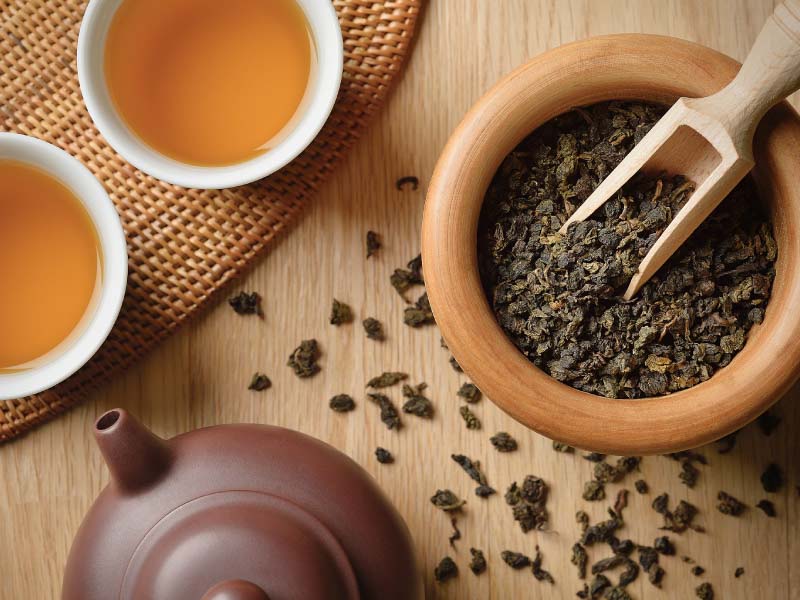Next to water, tea is one of the most popular beverages in the world, and at just a couple of calories per serving, it's loaded with flavonoids that make it one of the world's healthiest beverages as well.
"There are really only three drinks that I ever recommend humans consume," said Dr. Andrew Freeman, director of clinical cardiology and cardiovascular prevention and wellness at National Jewish Health in Denver. "The best is water, and next would be unsweetened tea and unsweetened coffee. Everything else, unfortunately, doesn't really have any benefit, and many (when laden with sugar) cause significant harm.
"It makes my job very easy when people say, 'What should I drink?'"
Studies show tea consumption, along with a heart-healthy diet, may improve some brain function, ward off some cancers, defend against heart disease by boosting "good" cholesterol and help with weight control. It may even reduce bad breath.
A 2018 study in the Journal of the American Heart Association found that tea appears to slow the natural decrease in heart-helping HDL cholesterol as a person ages. Those findings pair well with previous research that suggests tea also reduces low-density lipoprotein, or LDL, known as "bad" cholesterol. Studies also show tea may reduce blood sugar levels and help prevent type 2 diabetes.
Black and green tea are the most popular kinds, accounting for 99% of the tea consumed in the United States. Both kinds of tea are loaded with caffeine and antioxidants called polyphenols, which are linked to lower blood pressure and better heart health. There are some slight differences; black tea, for example, contains more caffeine while green tea has a slightly better antioxidant profile.
Experts are quick to point out, however, that tea's health benefits can be negated if sugar or other unhealthy ingredients are added.
"It's very easy to take a low-calorie beverage and make it incredibly unhealthy by adding tons of sugar or honey," Freeman said. "If you go to parts of the South – the stroke belt, so to speak – they actually have a surprising amount of 'superfoods' in their diet, but they also have some of the highest rates of heart disease. Why is that?
"When you adulterate those foods, for instance making sweet tea from regular tea, it ends up with a lot more adverse cardiac outcomes."
While temperature also may seem to be a matter of individual preference, cooler tea may prove to be a healthier choice.
"Some studies found that drinking very hot tea – 140 degrees Fahrenheit or higher – was associated with a high risk of esophageal and/or gastric cancer," said Dr. Xiang Gao, director of the Nutritional Epidemiology Lab at Pennsylvania State University. "So, if you drink tea, do not drink the tea that is too hot."
Though experts say tea is a safe, natural beverage that is a better choice than processed, sweetened beverages, there can be negative side effects if a person consumes too much.
For example, drinking too much tea could lead to an iron deficiency because tea is rich in tannins, which can bind to iron and keep it from being absorbed in the digestive tract. Tea drinkers also face the same caffeine-related dangers that coffee drinkers face; too much can cause anxiety, restlessness or trouble sleeping.
Still, tea makes for a healthier beverage choice than juice or soda, provided it's in its natural form with no added ingredients.
"If you go to your local coffee shop and you order a pink dragonfruit yada yada yada, those are loaded with sugar," Freeman said. "They're really delicious, and you see people drinking them, and they think they're healthy because they contain exotic fruits, but they're mostly sugar. It is possible to go to a coffee shop and get plain (unsweetened) coffee, plain (unsweetened) tea – or plain green tea for that matter – but you have to really be careful what you're consuming."
If you have questions or comments about this story, please email [email protected].
Eat It or Leave It?
Not sure if what you’re putting on your plate is healthy? The Eat It or Leave It? series from American Heart Association News covers the science behind foods and drinks, with an expert look at the health pros and cons.
